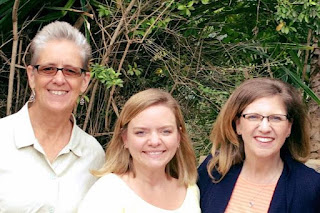 |
| I met Adam when I was in Nakuru recently |
Blurb on back cover
Beyond the newsletters and well-crafted blog posts lies a missionary world that few outsiders ever see. Missions Unmasked peels off the façade shrouding the realities of that world. Adam Mosely offers an inside look into the life of a missionary, and an exploration of the challenges and issues facing global missionaries and those who care for them.
It’s time to move beyond the myth, embrace the humanity of the missionary, understand the brokenness of their situation, and tap into the restorative power of authentic relationships. To become better partners, we must begin by removing the mask and seeing clearly, perhaps for the first time, the
real life of the missionary.
[Note: The following are excerpts from the book.]
What I Thought I knew
Whether attempting to coddle, to inspire, or to challenge, our misguided attempts to be helpful often leave our missionary friends feeling abandoned, alone, and misunderstood. If we are to support missionaries well, we must seek first to understand, then to understand more. We have to accept the fact that sitting thousands of miles away, our five-minute solutions are useless.
Stepping out in faith seems to be built into them, like breathing or eating. They are the great adventures for God – trailblazing pioneers of the faith. But the majority of missionaries are not super-saints. They are just ordinary people who are trying their best to do what they’ve been created to do. The often feel unprepared spiritually, emotionally, and physically for the task at hand. Many question why God would call them to this task in the first place.
The leaders of the first century church were in much the same boat. They were ordinary people walking out their calling in fallible human ways, but they changed the world forever. Missionaries should take great comfort in knowing that God has, throughout history, shown a willingness to use ordinary people to do extraordinary things.
What is the make-up of a missionary?
Obedience: This is a key driver, aligning us with God’s heart. It somehow changes us from the inside out, and causes God’s desires to become our desires.
Tenacity: Missionaries are some of the most tenacious people I’ve ever met. They won’t stop until they accomplish their goal, even though missionary life is full of frustration, difficulty, and roadblocks.
Enduring Yes: This is the single-most important and all-encompassing word for a missionary. They are someone who says ‘yes’ to God… and keeps saying yes
over and over, even in the face of tremendous difficulty. They keep fighting, keep hoping, keep believing in the God who sent them on this mission.
If I must boast, I will boast of the things that show my weakness. For Christ’s sake, I delight in weaknesses, in insults, in hardships, in persecutions, in difficulties. For when I am weak, then I am strong. ~ Paul, 2 Corinthians 11:30; 12:10
These are the words of a missionary being real with those he’s leading. Paul’s life was hard and he persevered, but in the end, he was a weak man who recognized that only through his weakness could God really shine. Trust in God, hope for the future, and unrivaled determination may keep a missionary in the field through tough times, but like Paul, it is in the moments of weakness that they truly see God work.
The purpose of long-term missions
To fully encompass the call of the missionary, we must first recognize the call of all people – a call to
die to ourselves and to live and love the way Jesus did. The mission of love God has sent us
all on requires us to invest deeply in people. It requires us to love and keep loving, to serve and keep serving. It involves the spiritual
and the physical, and it’s never-ending.
The purpose of missions has almost nothing to do with
the tasks being performed, the programs being put in place,
or even the souls won for Christ.
The purpose of missions is far greater –
to embody Jesus, in every possible way, for those we encounter.
Missionaries are beacons for those of us trying to follow Jesus. Their job and their life is an intensely-focused beam of the same kind of life we are all called to be. That God can use broken and messed up people to impact every tribe and tongue and nation should be of great encouragement to us. It should inspire us to go and love others the way God loves us.
The purpose of missions is to love like God loves. This love is the inescapable force that draws people from all walks of life and bids them drop their proverbial nets and follow in the footsteps of Jesus.
Until we begin to understand that kind of love,
we will never fully comprehend missions work,
nor will we understand the missionaries who have given their lives
to sharing God’s love with the world.










































